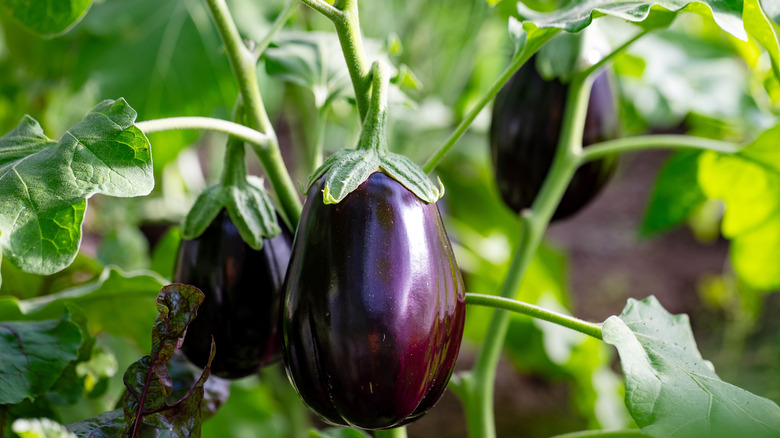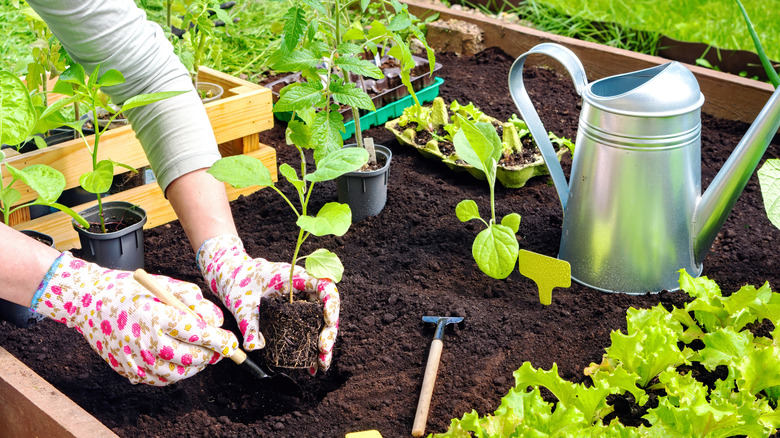The Biggest Mistake You Could Make When Growing Eggplant In Your Garden
If you're worried about the growth of your eggplants, you're not alone. The eggplant, or Solanum melongena, is a frequent favorite for people's home gardens as a source of fiber and vitamins A and C. However, if your eggplants are smaller than usual or not growing at all, you could be making a common garden mistake. Companion planting can benefit your garden by boosting plant health and saving space, but sometimes, gardeners plant vegetables next to eggplants, like fennel, corn, and potatoes, that aren't mutually beneficial without realizing. Luckily, there are more than a few companion plants for eggplants that will boost the wealth of your harvest and the health of your veggies. You can also leverage companion plants to attract pollinators or deter insects.
When planting, eggplants are the happiest in warm temperatures (ideally between 70- and 85-degrees Fahrenheit) and thrive in full sun. If you choose to grow your eggplants in containers, make sure they're in dark containers to absorb more sunlight, especially if you live in a cooler climate. Then, once you start companion planting your eggplants, ensure that the plants you choose to be adjacent aren't accidentally harming your crop. For example, it's best to avoid fennel next to eggplants because this plant releases toxins from its roots into the soil around it, stunting the growth of its neighbors. Check out why some other plants are bad companions as well.
Bad eggplant neighbors and better alternatives
Avoid planting corn near eggplant, as it's a "heavy feeder" plant, meaning it needs a greater amount of nutrients to thrive. Eggplant is a heavy feeder, too, so planting these together could deprive one of nutrients. Other heavy feeders to avoid include cucumbers, melons, and zucchini. Additionally, corn may create too much shade near sun-loving eggplants, stunting growth. Gardeners should also be wary of planting potatoes near eggplant because they are both nightshades, meaning they invite similar pests like Colorado potato beetles and flea beetles. Thus, if an infestation occurs, it might be harder to manage.
For a better option, marigolds are a successful companion plant that pairs well with eggplant. Not only do they attract helpful bugs like bees and butterflies, but they keep unwanted pests away. Or try adding oregano to your eggplant patch and watch it flourish. Oregano also keeps pests like aphids away from your growing garden. Beans can also make great companion plants for eggplants. While all beans can provide extra nutrition for their companion plants by adding nitrogen to the soil, you may want to choose different varieties depending on where you're gardening, such as bush beans for container growing.
There are some companion plants that are polarizing, like tomatoes. Some gardeners say that tomatoes are great with eggplant because they have similar nutrition and temperature needs. Others say, as fellow members of the nightshade family, tomatoes cause similar problems to potatoes by encouraging garden pests that will affect both plants. Ultimately, your choice of companion plant depends on your garden.

